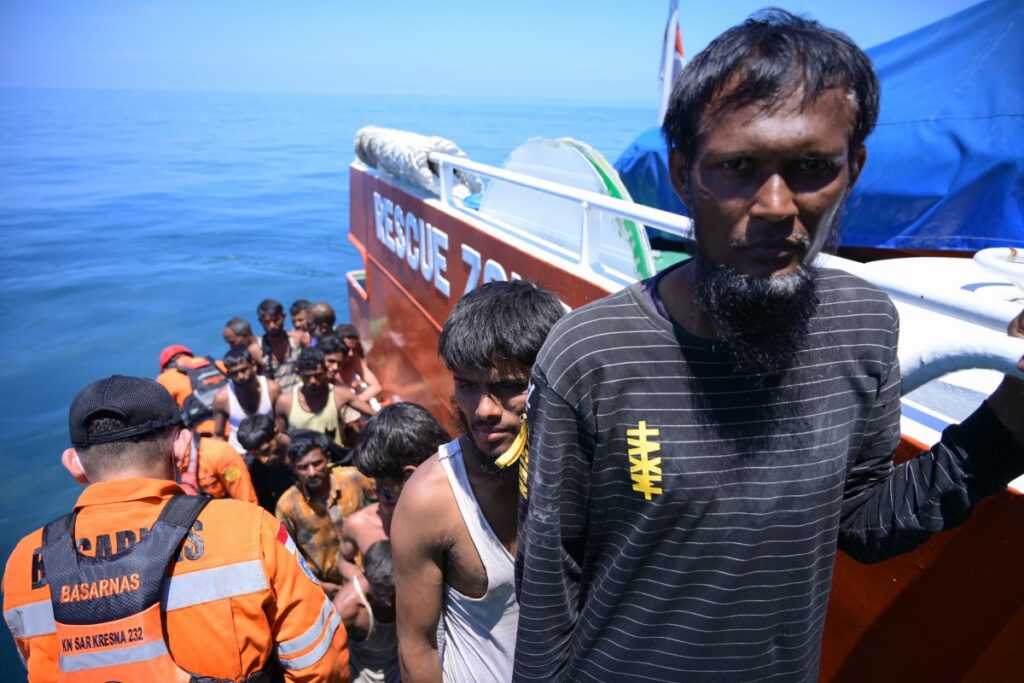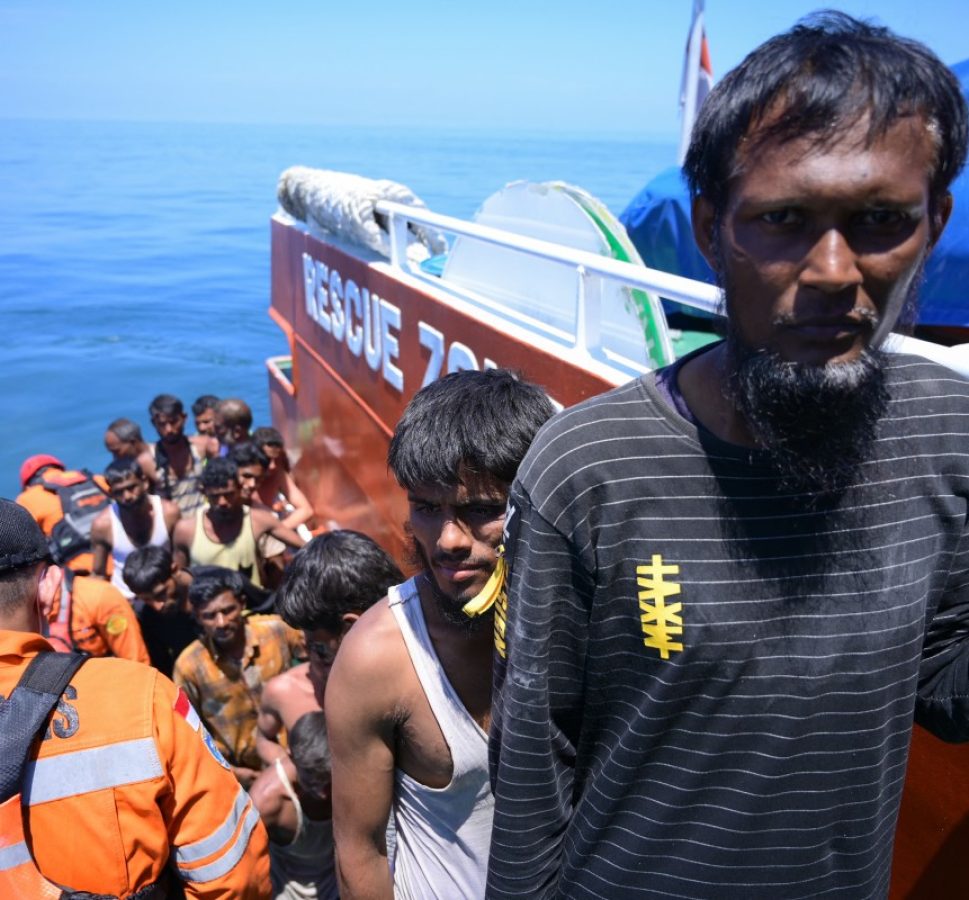
Those rescued include 42 men, 18 women and nine children after boat capsized off the coast of Indonesia’s Aceh province.
Medan, Indonesia – At least 69 Rohingya refugees have been rescued after a wooden boat with an estimated 150 people on board capsized off the coast of Indonesia’s Aceh province.
The Commission for Missing Persons and Victims of Violence (KontraS Aceh) said on Thursday that 42 men, 18 women and nine children were brought to port.
But dozens more are feared to have drowned. The boat is thought to have run into trouble some 19km (12 miles) from the beach of Kuala Bubon on the west coast of Aceh after it hit rough seas on Wednesday morning.
Earlier, six people – four women and two men – were rescued from the boat by Acehnese fishermen and taken to a shelter, where they were able to speak to Faisal Rahman, a representative from the UN Refugee Agency (UNHCR).
Rahman said the survivors’ testimony suggested many had drowned.
“We can’t confirm the exact number of casualties, but according to information from the six who were rescued, there are many dead,” he told Al Jazeera. “They assume about 50 people died when the boat capsized.”

It is thought that most of those presumed to have died were women and children who were unable to swim, and carried out to sea by the currents.
Amateur footage shot by local fishermen at the scene, which has been widely shared on Indonesian social media, showed survivors standing on the boat’s upturned hull.
They all appeared to be male.
Emaciated and dressed in shorts, they waved at the fishermen and begged to be rescued.
Amiruddin, a fishing community leader in the Aceh Barat district where Kuala Bubon is located, said a search and rescue boat from Indonesia’s National Search and Rescue Agency had been dispatched on Wednesday.
It is unclear why the boat sank, although wooden boats carrying refugees from the camps in Bangladesh are often in poor condition and overcrowded, with only basic facilities on board.
In August 2023, 17 Rohingya refugees died when their boat sank in the Bay of Bengal.
UNHCR’s Rahman said the rescue agency had been unable to find the exact location of the boat on Wednesday night.
‘Humanity cannot wait’
Azharul Husna, the coordinator of KontraS Aceh, questioned why a rescue boat needed to be sent from Banda Aceh, some 223km (138 miles) away from Kuala Bubon, when the rescue agency had other boats in the vicinity.
[Translation: Aceh fishermen help Rohingya refugees whose boat capsized, about seven miles from Kuala Bubon, West Aceh on Wednesday, March 20, 2024.]
Husna said rescuing the refugees as soon as possible was crucial and that it was the responsibility of the Indonesian authorities.
“Humanity cannot wait and this is a life or death situation,” she said. “According to the Indonesian presidential decree of 2016, refugees who are found at sea have to be rescued.”
She added that residents of Kuala Bubon had gone to the town’s port overnight, and called for the refugees to be refused the right to land.
Some held banners calling for a “boycott” of the Rohingya, who are fleeing decades of persecution in their native Myanmar that exploded into a brutal military crackdown in western Rakhine state in 2017.
Some one million Rohingya have been living in overcrowded camps in Bangladesh ever since, while the situation in Myanmar has deteriorated further since the February 2021 military coup, prompting many refugees to seek safety elsewhere.
In recent years, however, people in Aceh have become increasingly resistant to the Rohingya who are usually trying to reach Malaysia, which had 108,500 registered Rohingya refugees at the end of February, according to the UNHCR.
In December last year, the Indonesian navy pushed back a boat carrying Rohingya refugees as it approached the coast of Aceh, amid resentment among residents at a perceived sudden increase in boat arrivals.
Also in December, a mob of students stormed the basement of a local community hall in Banda Aceh where about 137 Rohingya were taking shelter, and called for the group to be deported.
Indonesia is not a signatory to the 1951 UN Convention on Refugees but was once considered to be more sympathetic to the Rohingya, compared with other countries in the region such as Malaysia or Thailand, where authorities have prevented boats from landing in previous years.
However, in recent years, this sympathy appears to have evaporated, with some Acehnese residents claiming, with little evidence, that the Rohingya receive more resources from aid agencies than residents and engage in criminal activity while in Indonesia. Similar claims have been made by some in Malaysia, also without evidence.






